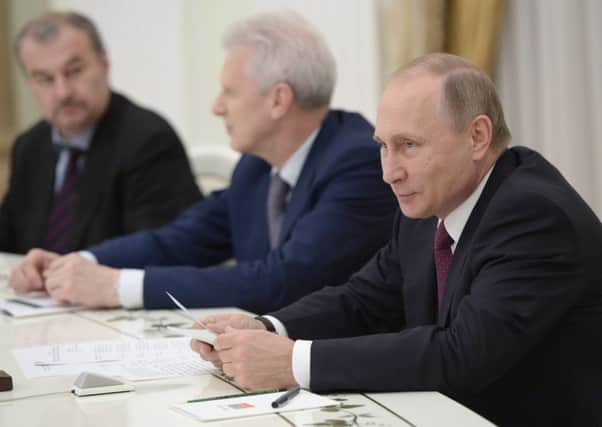Overwhelming victory for Putin-backed party in Russian election


With 93 per cent of the ballots from Sunday’s vote counted, the United Russia party was on track to get 343 of the 450 seats in the State Duma, the lower house of parliament, CEC head Ella Pamfilova said.
She said the results were not expected to change significantly in the final count to be announced on Friday.
Advertisement
Hide AdAdvertisement
Hide AdIt is an immense gain – more than 100 seats – for the party that held a majority in the previous parliament, and gives it enough strength to amend the constitution on its own.
Kremlin spokesman Dmitry Peskov said Mr Putin “once again received a massive vote of confidence from the country’s people”.
Turnout was distinctly lower than in the last Duma election in 2011 – less than 48 per cent nationwide compared with 60 per cent. In Moscow, just 35 per cent of those eligible cast ballots.
The three other parties that had been in the previous parliament and that largely cooperated with United Russia will also be in the new Duma, though all in reduced numbers.
The Communists will have 42, a sharp drop from 92, the nationalist Liberal Democrats 39 and A Just Russia 23.
Two other seats were won by candidates from small parties and one by an independent. In contrast to the two previous elections, only half the seats in this election were chosen by national party list; the others were contested by single-seat districts.
But the election observer mission of the Organisation for Security and Cooperation in Europe pointedly said that Russians felt widely disengaged from the political process.
The mission criticised the news reporting on national TV channels, which are owned or controlled by the state, for focusing overwhelmingly on the incumbent authorities and noted “self-censorship encouraged by the restrictive legal and regulatory framework”.
Advertisement
Hide AdAdvertisement
Hide AdMarietta Tidei, one of the heads of the observer mission, said that Ms Pamfilova’s leadership of the election commission, which began five months ago, “has given election stakeholders confidence that the elections can be well-run, yet the low-key campaign shows an overall lack of (public) engagement”.